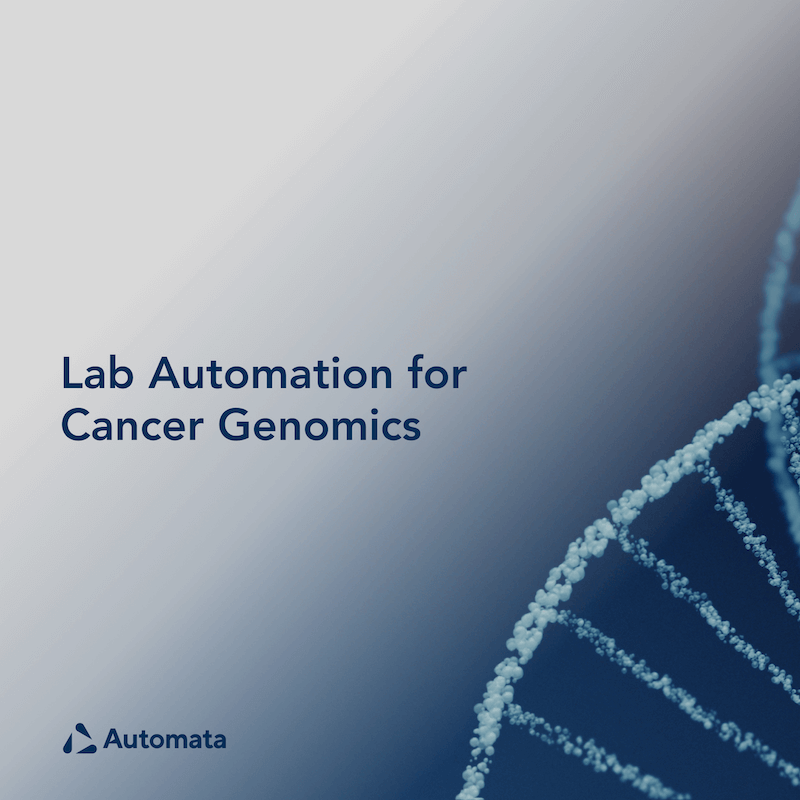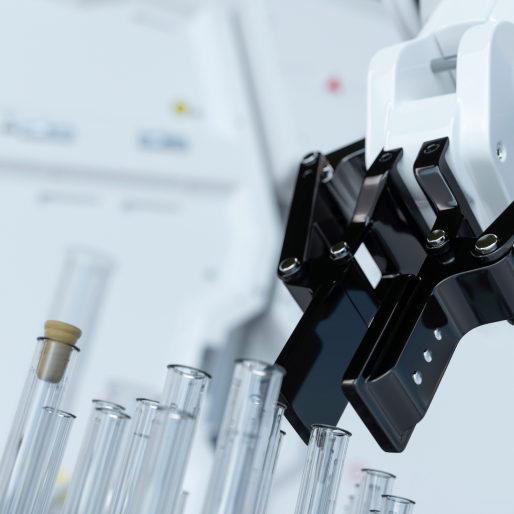

Enhancing colony counting through automation
Complete colony counting automation
The challenge
In microbiology labs counting colonies is a critical, but time-consuming process.
Our solution addresses the limitations encountered by labs that want to improve their processes and accuracy of output.
Human accuracy
Humans can only work so fast, especially when manually counting colonies. But when mistakes happen, data integrity is at risk and precious time is wasted.
Staffing
Manually carrying out repetitive tasks day-in day-out is time consuming. As a result staff turnover is high and labs are understaffed.
Manual scale
Labs may not be able to increase output if they are already working to maximum capacity due to manual processes.
The solution
The Automata LINQ Platform’s automated colony counting solution integrates a robotic solution to increase scale, quality and walk away time for lab workers.
The solution is a highly-flexible modular automation station, able to fit into labs of all shapes and sizes.
Machine precision
By using automated vision instruments, labs can increase quality and ensure consistent reliability of results.
Scalable
Able to run at maximum capacity with minimal human input, countings are completed quicker than ever before.
Walkaway time
By automating processing and digital data capture, staff are now freed up to more important analysis and verification work.
Colony counting is better with robotics
Robotic enabled colony counting for environmental testing
By combining benchtop instruments that integrate together such as Interscience Scan 4000tm and SciRobotics PetriSel, our solution automates the colony counting process by handling and counting plates at a rate of 10 seconds per plate from start to finish.

Some of our clients
FAQs
Our automation solution specialises in digitally and robotically connecting lab instrumentation to enable hands-off execution of individual tasks through to complete workflows.
We’ll work with you to determine what kind of automation your lab would benefit from, guided by your challenges and goals.
One automated colony counting solution we’ve developed on our LINQ system combines benchtop instruments such as the Interscience Scan 4000tm and SciRobotics PetriSel to handle and count plates at a rate of 10 seconds per plate, from start to finish, without any human interaction required.
There are both human and result benefits to be had when automating high-throughput colony counting.
- By using automated vision instruments, labs can increase quality and ensure consistent reliability of results
- Labs are able to run at maximum capacity with minimal human input – countings are completed quicker than ever before
- By automating processing and digital data capture, staff are now freed up to do more important analysis and verification work.
Automated colony counters employ technology that utilises machine learning algorithms taught by digital images to provide a high-throughput alternative to manual colony counting.
The Invitrogen Countess™ 3 Automated Cell Counter from Fisher Scientific is an example of a benchtop-automated cell counter.
With Automata you can go beyond siloed benchtop automation by combining benchtop instruments that integrate together, such as Interscience Scan 4000tm and SciRobotics PetriSel with LINQ.
It would automate the colony counting process further by handling and counting plates at a rate of 10 seconds per plate from start to finish.
Automated colony counting saves time and resources, and is a great solution for high-throughput labs.
Typically a fully automatic colony counter collects images using a digital image capture device like a webcam or scanner. That image is then processed using a single or multi-threshold segmentation procedure to separate and detect the colonies.
Seek advice if you’d like to know more about the many colony counters our automation solution can integrate.
Colony counting is conducted so that scientists can accurately estimate how many cells are able to grow and/or develop in the conditions under exploration in the experiment.

Nick Lench, Genomics Expert and Co-Founder of Congenica, discusses the challenges holding…
Read more Enabling clinicians and patients to make data-driven decisions with genomics
Following the NHS’ collaboration with automation leader, Automata, to accelerate lab automation,…
Read more The future role of automation
Genomic sequencing will revolutionise healthcare over the next decade. We take a…
Read more Unlocking the potential of genomic sequencing

